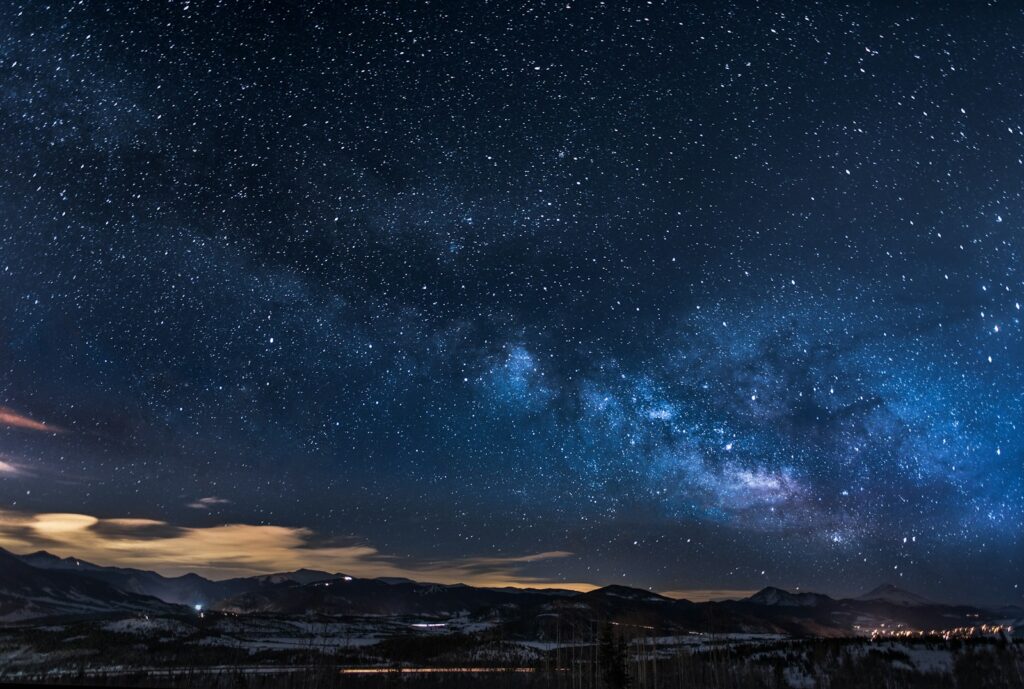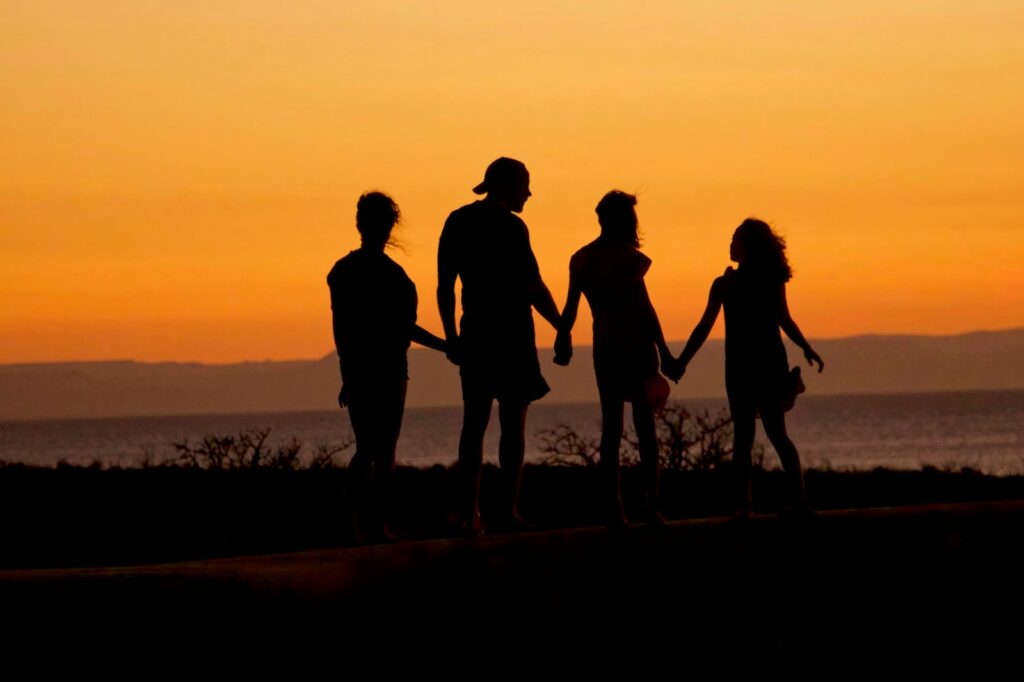In a world dominated by digital screens and urban hustle, the simple joy of sleeping beneath a canopy of stars has become a forgotten luxury. Family vacations often default to theme parks or all-inclusive resorts, where schedules are packed and natural wonders remain distant backdrops. Yet something magical happens when families trade hotel rooms for tents and city lights for starlight. A camping vacation offers not just a change of scenery but a complete shift in perspective—one where time slows down, conversations deepen, and connections with both nature and each other strengthen in surprising ways.
As modern life continues to accelerate, perhaps the most revolutionary vacation choice is also the most ancient: gathering your loved ones and venturing into the great outdoors.
The Vanishing Night Sky: A Wonder Worth Chasing

Light pollution has dramatically altered our relationship with the night sky, with research showing that over 80% of Americans can no longer see the Milky Way from their homes. This disconnection represents more than just a missing view—it’s the loss of a perspective that has inspired humanity for millennia. When families camp in remote locations, they reclaim access to this ancestral wonder, often witnessing truly dark skies for the first time. Children who might casually learn about constellations in school experience a profound difference when they actually see thousands of stars blazing overhead, the Milky Way stretching across the darkness like a luminous river.
These moments create natural opportunities for conversations about astronomy, mythology, and our place in the universe, turning abstract concepts into visible reality.
Digital Detox: The Unexpected Gift of Limited Connectivity

One of camping’s greatest benefits comes from what it lacks—namely, constant connectivity. Without reliable Wi-Fi or cell service, families naturally disengage from digital distractions and redirect attention to their immediate environment and each other. Research has linked excessive screen time to increased anxiety and decreased attention spans in both children and adults, making this aspect of camping particularly valuable. Parents often report surprise at how quickly children adapt to life without devices, discovering creative play alternatives and engaging more meaningfully in conversation.
The initial discomfort of disconnection typically transforms into relief as families rediscover the pleasure of undivided attention and present-moment awareness. This digital reset often continues to benefit families after they return home, having experienced the rewards of less-tethered living.
Budget-Friendly Adventures: Maximizing Memories While Minimizing Costs

In an era of inflating vacation costs, camping stands out as remarkably economical while still delivering high-impact experiences. The average family of four might spend thousands on a week at a theme park or resort, while a comparable camping trip often costs a fraction of that amount, even when accounting for gear purchases. National parks typically charge entrance fees between $20-35, with campsite reservations ranging from $15-50 per night, dramatically less than hotel accommodations. Food expenses also decrease when families cook simple meals at their campsite rather than dining out.
The affordability factor allows families to extend vacations longer or take more frequent trips throughout the year, building a sustained outdoor tradition rather than a once-annual splurge. Additionally, many families find that investing in quality camping gear creates value over multiple trips, further reducing the per-vacation cost over time.
Nature’s Classroom: Learning Without Lesson Plans

Educational opportunities emerge organically during camping trips, offering children experiential learning that complements traditional schooling. From identifying local plant species to understanding weather patterns, natural settings provide constant opportunities for observation and inquiry. Children develop scientific thinking as they notice patterns, ask questions, and form hypotheses about the world around them. A child who helps build and maintain a campfire learns fundamental principles of combustion and heat transfer more memorably than through any textbook.
Navigation skills develop naturally as families explore trails, use maps, and learn to orient themselves in unfamiliar terrain. This immersive learning environment engages multiple senses and learning styles simultaneously, creating stronger neural connections and more durable memories than classroom-based education alone.
Building Resilience: How Outdoor Challenges Strengthen Character

Camping inevitably involves minor discomforts and unexpected challenges that create valuable opportunities for developing resilience. Whether setting up a tent in windy conditions, adapting to a sudden rainstorm, or managing without certain conveniences, families must problem-solve together and demonstrate flexibility. Research in developmental psychology suggests that navigating appropriate challenges in supportive environments helps children build confidence and coping skills that transfer to other life situations. Parents often witness their children displaying unexpected competencies when given real responsibilities at the campsite, from gathering firewood to helping prepare meals.
These authentic contributions foster a sense of capability and belonging that boosts self-esteem more effectively than artificial confidence-building exercises. The shared experience of overcoming obstacles also strengthens family bonds through the creation of meaningful stories that become part of family identity and lore.
Sleep Cycle Reset: Aligning With Natural Rhythms

Modern life has dramatically disrupted human sleep patterns, with artificial lighting extending activity well past sundown and electronic devices suppressing melatonin production. Camping naturally realigns sleep cycles with the sun’s rhythms, a pattern our bodies evolved to follow over thousands of years. Research published in Current Biology found that just one week of camping without artificial light resets circadian rhythms, with participants naturally falling asleep earlier and waking more refreshed. Families often report that children who resist bedtime at home willingly retire when darkness falls at the campsite and wake energized at sunrise.
This reset can be particularly beneficial for adolescents, whose biological sleep phase delay often conflicts with early school start times, resulting in chronic sleep deprivation. The improved sleep quality experienced during camping can help establish healthier patterns that families can partially maintain after returning home.
Destination Diversity: From Forests to Deserts to Coastlines

Unlike specialized vacations that offer a single type of experience, camping destinations span an incredible range of ecosystems, each offering distinct landscapes and activities. Families can explore dense forests with fern-covered floors in the Pacific Northwest, wake to sunrise over vast desert landscapes in the Southwest, or fall asleep to the rhythm of waves along coastal campgrounds. This diversity allows families to customize experiences based on their interests and gradually explore different environments over successive trips. Many families develop annual traditions of visiting certain campgrounds while also exploring new locations each year, creating both comforting rituals and fresh adventures.
The variety available within a single type of vacation helps satisfy different family members’ preferences while building a shared appreciation for natural diversity. Even within a single national park, families often encounter dramatically different ecosystems as elevation and terrain change, providing multiple experiences in one location.
Intergenerational Bonding: Activities For Every Age

Few vacation options accommodate multiple generations as effectively as camping, where activities naturally adjust to different physical abilities and interests. Grandparents may share knowledge of plant identification or stargazing while parents lead more strenuous hikes, and children discover their own adventures in nearby streams or forest edges. The campsite itself becomes a gathering place where stories are shared across generations, often revealing family history and values in natural conversation. Many grandparents report that camping trips provide their most meaningful interactions with grandchildren, away from the distractions and schedules that typically fragment family time.
The slower pace and shared simple pleasures—like roasting marshmallows or watching wildlife—create connection points accessible to all ages. This intergenerational aspect becomes increasingly valuable as families navigate geographic separation and busy schedules throughout the rest of the year.
Creative Play Renaissance: Imagination Unleashed

Natural settings spark imaginative play in ways that manufactured environments cannot replicate, as children interact with endlessly variable elements like sticks, stones, water, and living creatures. Without pre-determined functions or instructions, these natural “loose parts” invite creative interpretation and open-ended experimentation. Parents frequently observe their children engaging in more complex, sustained play outdoors than they typically demonstrate with conventional toys. A fallen log becomes a balance beam, a spaceship, or a home for imaginary creatures, changing function as play evolves.
This type of self-directed creative play develops critical cognitive skills including problem-solving, symbolic thinking, and narrative development. The natural world’s sensory richness—with its varied textures, sounds, smells, and visual patterns—provides stimulation that supports neurological development far more effectively than simplified indoor environments or digital alternatives.
Mindfulness Naturally: Present-Moment Awareness Without Trying

While structured mindfulness practices have gained popularity as antidotes to modern stress, camping creates conditions where present-moment awareness emerges naturally. The sensory richness of outdoor settings—the sound of wind through trees, the smell of pine needles, the feeling of sunshine warming skin—naturally pulls attention to immediate experience rather than past regrets or future anxieties. Research in environmental psychology confirms that natural settings reduce rumination and promote “soft fascination,” a restful attentional state where awareness is engaged but not taxed.
Families often report feeling more relaxed and attentive to one another after just a day or two outdoors, noticing details about their surroundings and each other that typically go unobserved. This natural mindfulness state contributes to the perception that time expands during camping trips, with days feeling fuller and more memorable than comparable time spent in routine environments.
Conservation Through Connection: Raising Environmental Stewards

Children who develop personal relationships with natural places become adults who care about environmental protection, creating a powerful foundation for conservation ethics. Research consistently shows that meaningful outdoor experiences in childhood correlate strongly with pro-environmental attitudes and behaviors in adulthood. When children witness their parents modeling respect for natural settings—properly disposing of waste, staying on trails, observing wildlife without disturbing it—they internalize these values more effectively than through abstract instruction.
Many families incorporate simple conservation activities into their camping trips, such as participating in campground clean-ups or learning about ecological restoration projects in the areas they visit. These experiences help children develop an identity as environmental stewards rather than just consumers of natural recreation. As climate change and habitat loss accelerate, raising the next generation with direct connections to natural places becomes increasingly crucial for long-term conservation efforts.
Getting Started: From Backyard to Backcountry

Families new to camping can begin with manageable steps rather than immediately tackling remote wilderness experiences. Backyard camping provides a convenient trial run where families can practice setting up equipment while maintaining access to indoor facilities if needed. Many state parks offer well-maintained campgrounds with amenities like restrooms, showers, and marked trails, making them ideal for building confidence before more adventurous trips. Renting or borrowing essential gear for initial outings allows families to test their interest before investing in equipment purchases.
Numerous organizations now offer introductory camping programs specifically designed for beginners, where experienced guides provide instruction on basic outdoor skills in supportive group settings. Starting with single-night trips in mild weather conditions helps families identify their preferences and requirements before progressing to longer or more remote experiences. This gradual approach builds competence and comfort while preventing potentially discouraging experiences from poor preparation.
Conclusion

As modern family life grows increasingly scheduled, fragmented, and screen-mediated, the simple act of camping offers a powerful counterbalance—a return to fundamental human experiences of community, wonder, and connection with the natural world. The memories created under starlit skies often become touchstone family stories, referenced years later with special clarity and fondness. While resorts and attractions may blur together in memory, the night your family watched meteor showers from sleeping bags or the morning you all woke to find deer grazing near your tent creates an indelible impression.
In choosing to camp, families don’t just select an accommodation style; they choose a different relationship with time, technology, each other, and the planet itself. Perhaps the most compelling reason for families to sleep under the stars is also the simplest: in an age of artificial experiences, genuine adventures still matter most.

